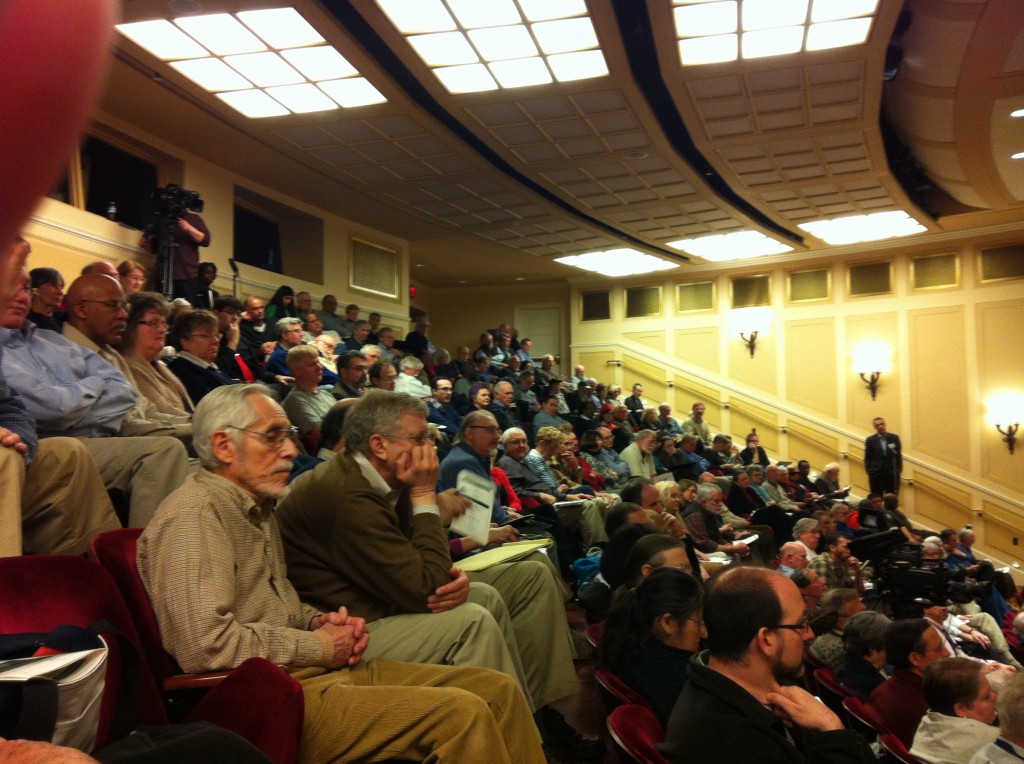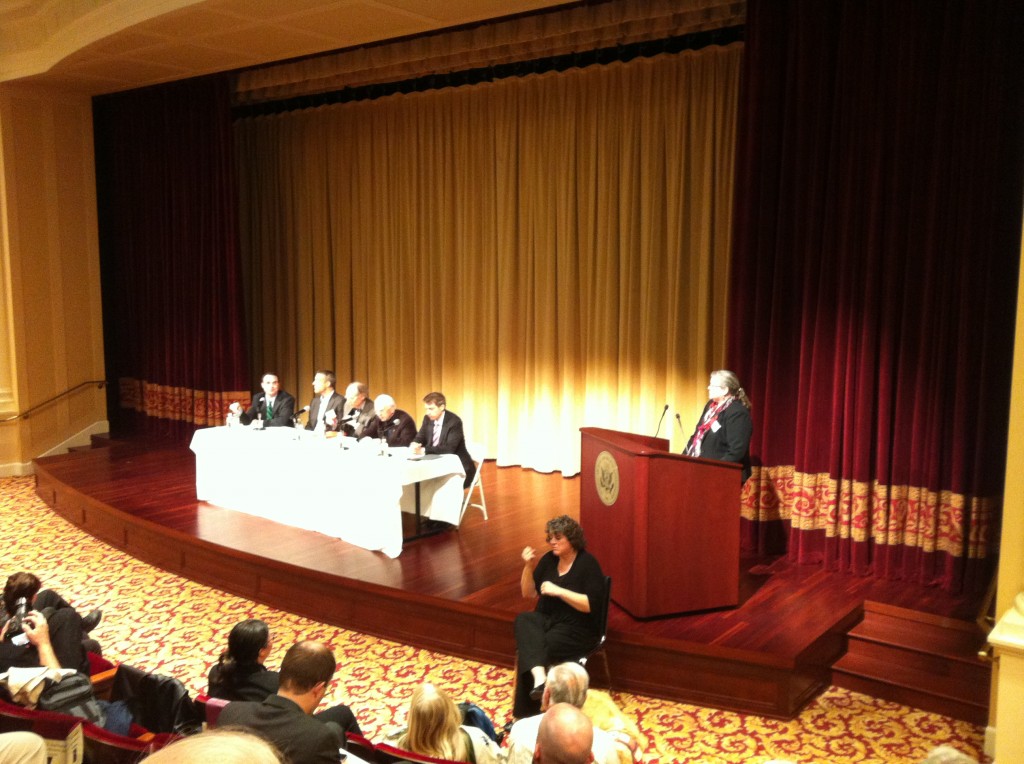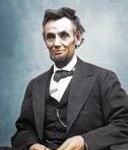 The Abraham Lincoln Institute holds an annual symposium, the last several years of which were held in historic Ford’s Theatre in Washington, D.C. Standing on-stage under the theatre box where Lincoln was assassinated creates a wave of emotions, from intimidating, to sadness, to inspiration.
The Abraham Lincoln Institute holds an annual symposium, the last several years of which were held in historic Ford’s Theatre in Washington, D.C. Standing on-stage under the theatre box where Lincoln was assassinated creates a wave of emotions, from intimidating, to sadness, to inspiration.
I wrote about the first symposium I attended several years ago back when it was in the National Archives. Since then I’ve attended every one. This year adds another dimension – I’ll attend my first as a member of the Board of Directors.
It looks like we’ll have a full house for the event. Speakers include Anna Gibson Holloway, William C. Harris, Michael Burlingame, Stanley Harrold, and Walter Stahr. Burlingame is a last minute stand-in for Richard Carwardine, who unfortunately was unable to fly in from the UK due to illness. Michael Burlingame is, of course, known to all Lincoln scholars for his many books, including the “green monster” (Abraham Lincoln: A Life), his two volume tome that is now every scholar’s bible for all things Lincoln. I saw Anna Gibson Holloway last weekend in Newport News, where she for many years was the curator of the USS Monitor Center, and many of the other speakers and attendees are familiar from their tremendous contributions to Lincoln scholarship. I’m looking forward to a great crowd.
I’ll have more on the symposium afterwards. Check out the ALI website for more info. While you’re at it, check out the website of the Lincoln Group of DC, of which I am a Vice President. We also have a great series of monthly dinner lectures that you should find interesting. Dinners are open to all.
David J. Kent is the author of Lincoln: The Man Who Saved America, in Barnes and Noble stores now. His previous books include Tesla: The Wizard of Electricity (2013) and Edison: The Inventor of the Modern World (2016) and two e-books: Nikola Tesla: Renewable Energy Ahead of Its Time and Abraham Lincoln and Nikola Tesla: Connected by Fate.
Check out my Goodreads author page. While you’re at it, “Like” my Facebook author page for more updates!











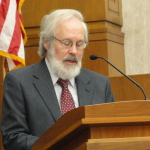
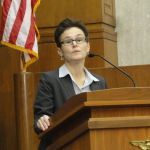 Elizabeth Varon, Professor of History at the University of Virginia, then provided some insights on the election from the South in her talk “Catastrophe or Setback? The Election of 1864 in Confederate Eyes.”
Elizabeth Varon, Professor of History at the University of Virginia, then provided some insights on the election from the South in her talk “Catastrophe or Setback? The Election of 1864 in Confederate Eyes.”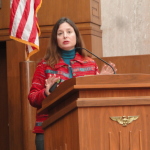 “The Summer of ’64” was a critical time period that significantly impacted the election, said University of Kansas Professor Jennifer Weber, author of Copperheads. Grant’s overland campaign had even die-hard Unionists war weary; Weber explored many reasons how military disasters turned into Union – and Lincoln’s – victories.
“The Summer of ’64” was a critical time period that significantly impacted the election, said University of Kansas Professor Jennifer Weber, author of Copperheads. Grant’s overland campaign had even die-hard Unionists war weary; Weber explored many reasons how military disasters turned into Union – and Lincoln’s – victories.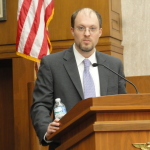 Speaking of the military, the soldier vote was crucial to Lincoln’s electoral victory in November. Christopher Newport University Professor and historian Jonathan W. White examined voting dynamics that possibly changed the outcome of the election in “Emancipation and the Soldier Vote of 1864.”
Speaking of the military, the soldier vote was crucial to Lincoln’s electoral victory in November. Christopher Newport University Professor and historian Jonathan W. White examined voting dynamics that possibly changed the outcome of the election in “Emancipation and the Soldier Vote of 1864.”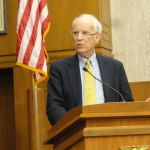 Following these great talks was our keynote speaker, noted historian Michael Burlingame, author and editor of numerous books on Abraham Lincoln. In a wide-ranging talk, Burlingame brought us into the opposition Lincoln faced in reelection, including many in his own party. His “Radicals, Abolitionists, and Lincoln’s Reelection” explored the fickleness not just of the public, but of the lawmakers and generals who worked for and against Lincoln.
Following these great talks was our keynote speaker, noted historian Michael Burlingame, author and editor of numerous books on Abraham Lincoln. In a wide-ranging talk, Burlingame brought us into the opposition Lincoln faced in reelection, including many in his own party. His “Radicals, Abolitionists, and Lincoln’s Reelection” explored the fickleness not just of the public, but of the lawmakers and generals who worked for and against Lincoln.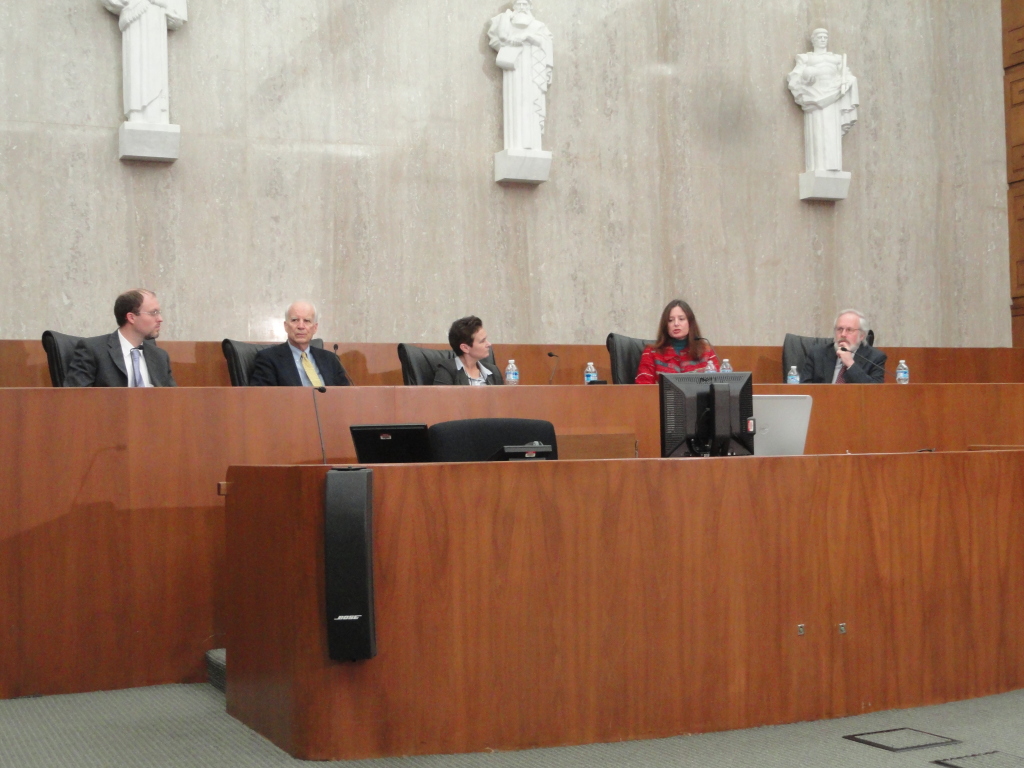
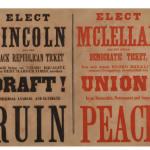 Abraham Lincoln was reelected for a second term in 1864, which surprised everyone,
Abraham Lincoln was reelected for a second term in 1864, which surprised everyone, 
